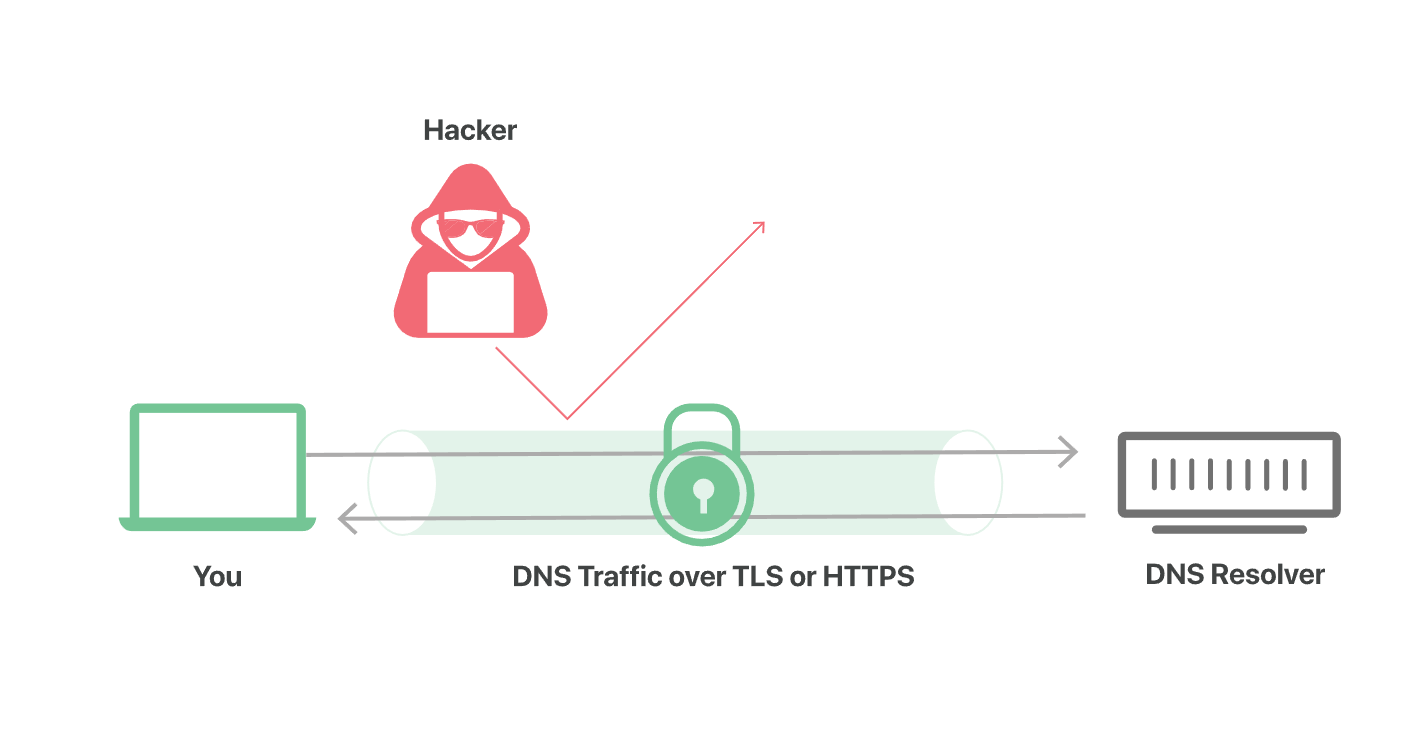The Domain Name System (DNS) is an essential part of the internet, translating human-readable domain names into IP addresses that computers use to communicate with each other. However, traditional DNS queries are sent in clear text, which means that they can be intercepted and manipulated by third parties. This can be a significant privacy and security concern, particularly for those who are using public Wi-Fi or other insecure networks.
DNS Over HTTPS (DoH) is a protocol that addresses these concerns by encrypting DNS queries and sending them over HTTPS, the same protocol used for secure web browsing. With DoH, DNS queries are no longer vulnerable to interception and manipulation by third parties, providing users with greater privacy and security when accessing the internet.
How Does DNS Over HTTPS Work?
DoH works by encapsulating DNS queries in HTTPS requests and responses. When a user types a domain name into their browser, the browser sends a DNS query to a DoH resolver, which is a DNS server that supports the DoH protocol. The resolver then encrypts the query and sends it over HTTPS to the target server. The server responds with an encrypted HTTPS response, which the resolver decrypts and returns to the user’s browser.
Benefits of DNS Over HTTPS
The main benefit of DoH is increased privacy and security for users. Because DNS queries are encrypted and sent over HTTPS, they are no longer vulnerable to interception and manipulation by third parties. This can help prevent internet service providers (ISPs), governments, and other third parties from tracking user activity, redirecting users to malicious websites, or blocking access to certain websites.
DoH can also help prevent DNS-based attacks, such as DNS spoofing, where attackers intercept DNS queries and return false IP addresses to redirect users to malicious websites. With DoH, DNS queries are encrypted and authenticated, making it more difficult for attackers to carry out these types of attacks.
In addition to providing greater privacy and security, DoH can also improve the speed and reliability of DNS queries. Because DoH queries are sent over HTTPS, they are less likely to be blocked by firewalls or other network security measures. This can help reduce latency and improve the overall performance of DNS queries.
Controversy Surrounding DNS Over HTTPS
Despite its many benefits, DoH has been the subject of some controversy, particularly among network administrators and ISPs. Some argue that DoH can be used to bypass network-level content filtering and monitoring, which can be problematic in certain contexts, such as schools, workplaces, and public libraries. Others have expressed concern that the use of DoH could make it more difficult for network administrators to diagnose and resolve DNS-related issues.
To address these concerns, some DoH implementations include features that allow network administrators to block or redirect DoH traffic. However, these features can be difficult to implement and may not be effective in all cases.
List Provider DoH
There are several DNS over HTTPS (DoH) providers available that users can choose from to encrypt their DNS queries and protect their privacy and security. Here are some of the most popular DoH providers:
- Cloudflare: Cloudflare is a popular content delivery network that provides a free DNS resolver that supports DoH. Users can configure their devices or browsers to use Cloudflare’s DoH resolver by specifying the following URL: https://cloudflare-dns.com/dns-query
- Google: Google provides a free DoH resolver that users can use by specifying the following URL: https://dns.google/dns-query
- Quad9: Quad9 is a nonprofit organization that provides a free DNS resolver that blocks access to known malicious websites. Quad9’s DoH resolver can be accessed by specifying the following URL: https://dns.quad9.net/dns-query
- NextDNS: NextDNS is a privacy-focused DNS resolver that provides a range of features, including ad blocking, tracking protection, and parental controls. NextDNS offers both a free and paid version of its service, and its DoH resolver can be accessed by specifying the following URL: https://dns.nextdns.io/dns-query
- AdGuard: AdGuard is an ad-blocking and privacy-focused software provider that offers a free DoH resolver. Users can configure their devices or browsers to use AdGuard’s DoH resolver by specifying the following URL: https://dns.adguard.com/dns-query
These are just a few examples of the many DoH providers that are available. When choosing a DoH provider, it’s important to consider factors such as privacy policies, reliability, and performance. Users should also ensure that their chosen DoH provider is compatible with their devices or browsers and that they have configured their devices correctly to use the DoH resolver.
You can download and install (PC Windows) DNS Over HTTPS from Cloudflare: CloudFlare
Conclusion
DNS Over HTTPS is a promising protocol that offers significant privacy and security benefits for internet users. By encrypting DNS queries and sending them over HTTPS, DoH provides an additional layer of protection against interception and manipulation by third parties. While DoH is not without its controversies, it represents an important step forward in securing the internet and protecting users’ privacy.

